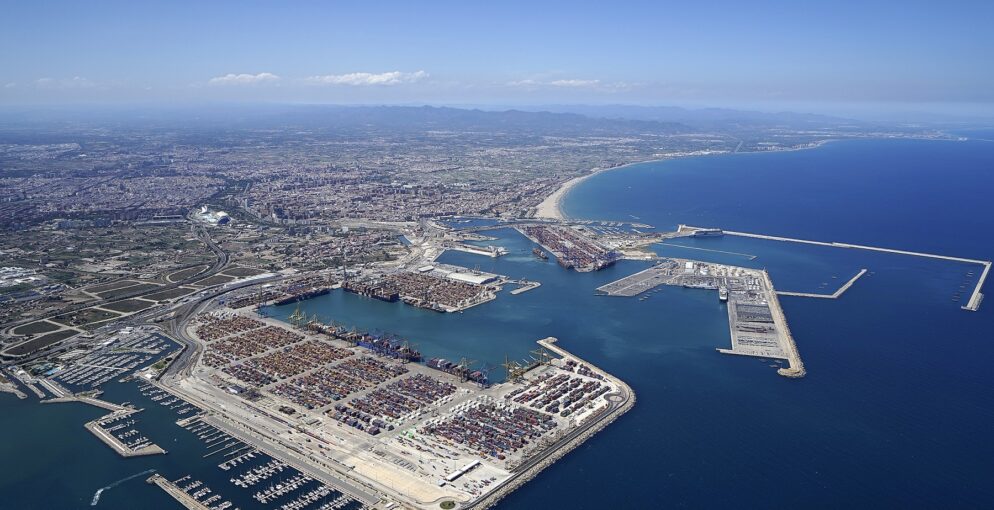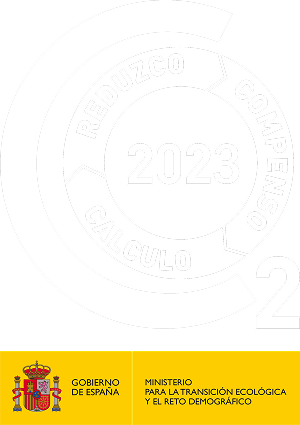- The II Valenciaport Hackathon will propose solutions for a smart, green and resilient port
- This event poses 4 challenges that have been proposed by Tiba España (Romeu Group), MSC, Navis and the Port Authority of Valencia
- The main prize consists of 3,000 euros, awarded by the Juan Arizo Serrulla Foundation (FJAS), and a second prize of 1,000 euros from the Propeller Valencia association
Valencia, 1 April 2022. – Fundación Valenciaport, in collaboration with Telefónica Open Future, has launched, within the framework of the incubation and acceleration programme of its Opentop initiative, the II Valenciaport Hackathon, an event to be held between 6 and 8 May, in face-to-face mode, which will seek to obtain innovative and creative solutions that improve performance and sustainability in the Port of Valencia.
The II Valenciaport Hackathon, which has the support and sponsorship of Cosco Shipping Lines, Infoport Valencia and Grupo Gimeno, will include 4 challenges related to the prevention of human error through artificial intelligence; the decarbonisation of the logistics chain; the search for the optimal location of each container in the terminal; and the generation of links between the port and the citizens through the commitment to the UN SDGs; challenges proposed by Tiba España (Romeu Group), MSC, Navis and APV, respectively.
This initiative, which is aimed at companies and corporations as well as students, entrepreneurs and startups, offers a main prize of 3,000 euros, awarded by the Juan Arizo Serrulla Foundation (FJAS), and a second prize of 1,000 euros provided by the association of logistics managers and entrepreneurs Propeller Valencia.
For three days, participants will be able to develop innovative solutions in response to the challenges posed, with the advice and support of expert mentors in ports and foreign trade from the sponsoring entities, Telefónica Open Future and the Valenciaport Foundation. In addition, they will have the help of the organisation in the formation of teams, for those who register individually.
During the grand final, the participating teams will present their promising solutions to a jury made up of the organisers and sponsors of the II Valenciaport Hackathon, which will select the two winning proposals.
The Hackathon organisers also point out that it is planned to give continuity to the most interesting solutions with the possibility of including them in the Opentop incubation and acceleration programme.
The 2nd Port of Valencia Hackathon will combine the academic knowledge and talent of the participants with the know-how of the port logistics community to promote the sustainable development of smart ports. This Opentop event is an extraordinary opportunity for the Spanish innovation ecosystem and will inspire the port logistics industry to turn their ideas into concrete solutions.
The registration period was opened on 23 March during the official presentation event of Opentop – the Valenciaport Innovation HUB – and will close on 24 April.
The Challenges:
– Preventing human error through artificial intelligence (challenge proposed by Tiba Spain – Romeu Group).
Every year, TIBA Spain carries out more than 90,000 operations, commonly known as bookings or shipments. They transport clothes or shoes, car parts, technology, construction material, machinery or even goods as important for human and animal health as medical devices.
The challenge is to find patterns in the information and correlations between the data of their operations over the last 5 years to be able to determine future incidents, which in turn could be grouped into 5 different types of incidents: incidents in the service itself; incidents of a subcontracted company; booking without offer; cancellations; and customs incidents.
The final objective of this challenge would be to develop an algorithm that is capable of finding patterns of behaviour in the information of each incident presented and that the algorithm is capable of predicting, based on a percentage of probability, that a new operation will incur one of the incidents and which of them.
· Decarbonisation of the logistics chain (MSC challenge)
In the maritime domain, the focus is on digitising planning and execution processes in ships, ports and terminals to increase transparency and sustainability sensitivity to improve decision-making.
Onshore, the focus is on connecting the port community and hinterland processes to improve forecasting and congestion management.
The challenge is to formulate and develop prototypes to deliver measurable benefits through:
- sustainable vessel navigation
- synchronisation of port services and land-based operations
advanced truck and train scheduling and dispatching mechanisms
so that energy consumption and emission parameters are fully integrated into decision making.
· Finding an optimal position for containers in the yard (Navis challenge)
All containers arriving at a terminal via a vessel are normally stored (stacked on top of each other) in the yard, before they are trucked out of the terminal. It is therefore important to store the containers in an optimal place, taking into account the departure time of each container and avoiding, as far as possible, so-called “reshipping” movements.
The challenge is to develop an algorithm to find an optimal place to store each incoming container in the yard, with the least number of manoeuvres and, at the same time, to improve the use of yard space.
· Generating links between port and citizens through commitment to the UN SDGs (challenge proposed by APV)
Leading ports such as Valencia are playing a key role in the sustainable transition, and the commitment to the United Nations Sustainable Development Goals (SDGs) generates a common framework of understanding on which to advance port-city relations.
Valenciaport’s plan to become a zero emission port by 2030 is one of the examples of this commitment and its alignment with the objectives of the city of Valencia, which aspires to be one of the 100 climate neutral and smart European cities by 2030.
The main objective of this challenge is to design solutions that create or strengthen the links between the port and the citizens, increasing their sense of belonging, recognising the port’s commitment to the SDGs and its relevant role in today’s well-being.
These solutions should be fun, engaging and accessible to all citizens. Solutions must have mass adoption and create community.
More information and registration: https://www.openfuture.org/es/challenge/ii-hackathon-valenciaport


